Why are women more prone to mental illness?
Mothers are the salt and the change that the world needs. They work very hard to treat their entire family well with consideration, understanding and cooperation. Mothers are good listener, blessed with a gentle heart to give comfort and support to children, even at the expense of their happiness. No matter how pre-occupied mothers may be, we still show strength. In low mood & high mood, we never stop giving support & in no way give up. Mothers faces challenges which usually causes overstressed, bad mood, discontented & anxious mood, despite all this we still show courage. Mothers are honest to a fault; they stand up for their children & never give up.
Why are women more prone to mental illness? THIS IS A QUESTION THAT EVEN THE SCIENTISTS CAN’T UNRAVEL. However, I would emphasis a few things that I notice about women around me including myself and connect it with some medical conditions, biological development and scientific discoveries that may progressively generate the symptoms of mental illness in women. Women encounter unimaginable challenges which may likely deteriorate their mental & physical health and also lead to exclusion and isolation for some that have lost their self-esteem or sometimes lost of life in the process of rearing children or trying to sustain their marriages. However, we failed to entrust our body into the hands of a medical specialist such as physical and psychological professional that can help us recover quickly from physical sickness and mental illness. Medicalisation is identifying and treating every human natural process and social condition with the implementation of medications and therapeutic healing procedure. Theories and research about women connection between physical and mental health show medicalisation have a huge impact on human health. Additionally, some are ignorant of some certain procedure and measure to take, while many African mothers will prefer to make use of their money on children without putting their health into consideration, do not misquote me, that isn’t a bad decision! However, they should at least balance the two because only a mother that is alive and healthy can look after the children. Furthermore, some overused medicalization to destroy their system; they spend all their money on surgery to reshape their body part and bleaching to change their skin shade and failed to put their mind and physical health care centre of attention. On the other hand, some believe that medicalisation is a procedure that could have huge repercussion on their health and also blame biological description as a support for analysis of women body and mind.
the pre-menstrual symptom usually arrives with a menstrual dysphoric disorder or post-partum depression, a mental disorder associated with senselessness and madness apart from little concern such as unhappiness, short of liveliness, unhappiness, hopelessness, weight loss, sleeplessness and mild anxiety. Although, there is nobody scans or blood test to prove that feminist pre-menstrual pains were psychosomatic, state of unease or generalized dissatisfaction with life.
Menstruation is secretion, discharging of blood and tissue from the uterus and coming out of the vagina, which is basically controlled by estrogen and progesterone hormones and this process prepared women for pregnancy; nevertheless, specified1980 feminist theory attitude towards menstruation as biological determinism and reliable indication of healthy mature pre-menopausal, even though changes in hormone is usually discovered during blood and urine test, but not in all feminist
Pregnancy and childbirth, many delivered naturally while it is a difficult process for some; augmentation of labour to stimulate contractions with synthetic oxytocin; inducing labour, early cutting of the cord and placenta delivery forcefully, caesareans section paternity care such as artificial inductions or medications to start labour, cutting to enlarge virginal, epidural and all this usually lead to emotional trauma which the medical practitioners regularly diagnosed as postnatal depression. Psychological and social factors are contributing impediment to women’s unhealthy lifestyle and ill-health affecting the mind and body and if proper care is not taken, it deteriorates their mental health.
Women biological ways of responding to organism and environment differ.
However, need safe and effective medical and non-medical treatment. Life changes, status and medical allocation; in addition, the cultural setting can contribute to the growth we are praying for. However, they should also be aware of the benefit of medicalisation intervention and how the aspects of medical care shape, basically, all this will help them assess adequate preferences of what they really want, which will determine if they desire to advance with the health care procedure or not. Oluseyi Elizabeth Odudimu
